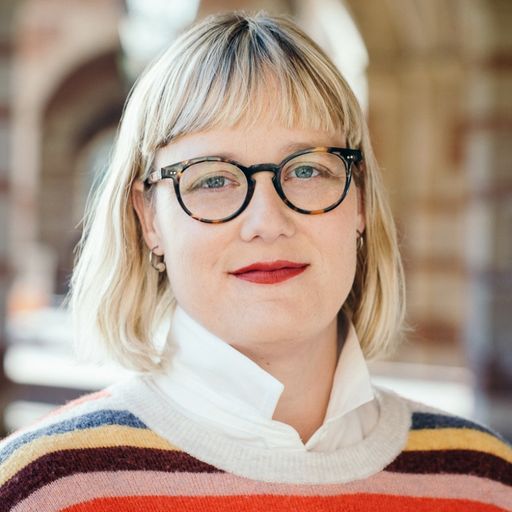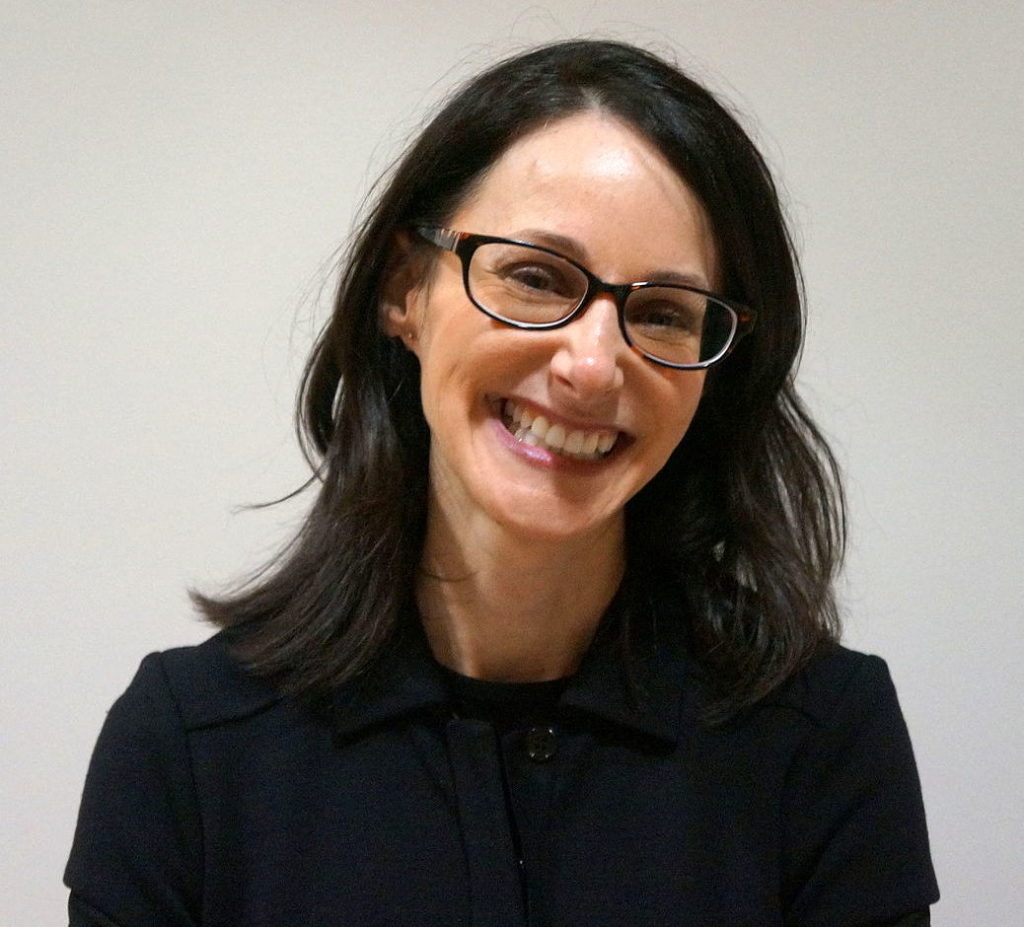Incivility & Content Regulation
Scholars & Thought Leaders
Sarah Jeong
Sarah Jeong is an American journalist specializing in information technology law and other technology-related topics. A member of the editorial board of The New York Times from 2018 to 2019, she was formerly a senior writer for The Verge and a contributing editor for Vice Media’s Motherboard website.

Sarah T. Roberts
Sarah T. Roberts is a professor, author, and scholar who specializes in content moderation of social media. She is an expert in the areas of internet culture, social media, digital labor, and the intersections of media and technology.
- Behind the Screen: Content Moderation in the Shadows of Social Media (2019)
- How Facebook Moderates Content (2017)
- re:publica 2016 – Sarah T. Roberts: Behind the Screen (2016)

Brianna Wu
Brianna Wu is an American video game developer and computer programmer. She co-founded Giant Spacekat, an independent video game development studio, with Amanda Warner in Boston, Massachusetts. She is also a blogger and podcaster on matters relating to the video game industry.

Danielle Citron
Danielle Citron is the Jefferson Scholars Foundation Schenck Distinguished Professor in Law at UVA, where she writes and teaches about privacy, free expression and civil rights. Her scholarship and advocacy have been recognized nationally and internationally.- Slate article, Tech companies get a free pass on Moderating Content

Film & Video
Social-Media Companies Threaten Democracy (2019)
Today, social-media companies like Facebook and Google are the gatekeepers of meaningful freedom of speech. This is problematic, argues the New York Law School Professor Nadine Strossen, because these companies often self-regulate in ways that violate the First Amendment.
Internet Free Speech: Do you know your rights? (2019)
In theory, individuals should have the same rights online as they do in the physical world. But in practice, this is uncharted legal territory. Perhaps the most contentious area is free speech law.
Lata Nott
Source: The Atlantic
“Wrap My Hijab” Rapper Mona Haydar Talks Sexism, Misogyny, and Religion on the Internet | ELLE (2018)
She’s a rapper. A chaplain. A feminist. And she wears a hijab. Meet Mona Haydar, the Muslim rapper whose 2017 musical debut sparked conversation, and controversy, all over the world wide web. Since, Mona has attracted an audience of fans — and haters — who’ve used the Internet to salute, and slam, the rising star. Watch as she shares her biggest gripes with being a public figure, a woman, on the Internet.
Source: ELLE
Harassment is breaking Twitter’s free speech experiment (2017)
Source: Vox
Twitter started off as a radical free speech experiment, but widespread harassment is forcing the social media giant to rethink what kind of platform it wants to be.
How Bad Are Online Haters In Korea? [STREET INTERVIEW] (2019)
Source: Asian Boss
Recently, a female YouTuber made headlines in Korea for suing approximately 100 of her online haters for defamation, despite evidence that she concocted her own scandal. This made us wonder how Koreans feel about online hate comments, and how big of a social issue it is in Korea.
Why is YouTube Erasing History? | NYT Opinion (2019)
In war zones, evidence captured on smartphones can provide a path to justice — but platforms like YouTube and Facebook are getting in the way. In the Video Op-Ed above, the Syrian activist and archivist Hadi Al Khatib urges platforms to overhaul and improve their content moderation systems. He fears that automated removal, which in 2017 deleted 10 percent of the archive documenting violence in Syria, risks erasing critical history.
Source: New York Times
Field of Vision – The Moderators (2017)
*Graphic Content* In an office in India, a cadre of Internet moderators ensures that social media sites are not taken over by bots, scammers, and pornographers. The Moderators shows the humans behind content moderation, taking viewers into the training process that workers go through in order to become social media’s monitors.
Source: Field of Vision
Internet Trolls: Born That Way? (2018)
What type of people are Internet trolls? Several research studies have looked at trolling behavior and they have found that Internet trolls tend to have personality traits associated with the dark triad of personality traits, like psychopathy and machiavelianism. Host Myles Bess discusses why people participate in trolling and how trolling disproportionately affects women and people of color.
Source: Above the Noise | PBS Digital Studios
Here’s What Online Harassment Looks Like | AJ+ (2018)
AJ+ explores the targeted harassment women face online and how it can become all too real. It’s not just women who speak out, online harassment has also become part of the power and control of domestic violence.
Source: AJ+
The Cleaners (2018), Directed by H. Block and M. Riesewieck [Documentary] Germany: Gebrueder Beetz Filmproduktion.
Enter a hidden third world shadow industry of digital cleaning, where the Internet rids itself of what it doesn‘t like. Here we meet five “digital scavengers”, among thousands of people outsourced from Silicon Valley, whose job is to delete “inappropriate” content of the net. In a parallel struggle, we meet people around the globe whose lives are dramatically affected by online censorship. A typical “cleaner” must observe and rate thousands of often deeply disturbing images and videos every day, leading to lasting psychological impacts.
Books & Articles
Department for Digital, Culture, Media & Sport (2019) Online Harms White Paper (cp57)
Facebook’s Uneven enforcement of hate speech rules allows vile posts to stay up (2017)
We asked Facebook about its handling of 49 posts that might be deemed offensive. The company acknowledged that its content reviewers had made the wrong call on 22 of them.
By: Ariana Tobin, Madeleine Varner, and Julia Angwin
Source: ProPublica
Facebook’s Secret Censorship Rules Protect White Men From Hate Speech, But not black children (2017)
A trove of internal documents sheds light on the algorithms that Facebook’s censors use to differentiate between hate speech and legitimate political expression.
By: Julia Angwin, Hannes Grassegger
Source: ProPublica
TikTok curbed reach for people with disabilities (2019)
Leaked documents reveal how TikTok hid videos of people with disabilities. Queer and fat users were also pushed out of view. The Chinese company says the rules were meant to protect vulnerable users.
When Limiting Online Speech to Curb Violence, We should be careful (2019)
Opinion: Silencing forums that spread mass violence can also silence the marginalized
By: Cindy Cohn
Source: Wired
Speaking Freely: Rima Sghaier
Rima Sghaier is a human rights activist and researcher who works at the intersection of technology and human rights, particularly in the Middle East and North Africa. Rima grew up in Tunisia under the regime of Zine El Abidine Ben Ali, which lasted for twenty-four years. We discussed the impact of Tunisian internet censorship and much more.
Source: Electronic Frontier Foundation
Speaking Freely: Sandra Ordoñez
Sandra (Sandy) Ordonez is dedicated to protecting women being harassed online. Sandra is an experienced community engagement specialist, a proud NYC Latina resident of Sunset Park Brooklyn, and a recipient of Fundación Carolina’s Hispanic Leadership Award. She is also a long-time diversity and inclusion advocate, with extensive experience incubating and creating FLOSS and Internet Freedom
Source: Electronic Frontier Foundation
Speaking Freely: Evan Greer
Evan Greer is many things: A musician, an activist for LGBTQ issues, the Deputy Director of Fight for the Future, and a true believer in the free and open internet. Evan is a longtime friend of EFF, and it was great to chat with her about the state of free expression, and what we should be doing to protect the Internet for future activism.
Source: Electronic Frontier Foundation
Speaking Freely: Ahmet Alphan Sabanci
Ahmet Alphan Sabancı is a Turkish digital activist who works on free expression, security and privacy. He’s the founder of NewsLabTurkey and has contributed to EFF’s Surveillance Self-Defense. Ahmet spoke to me about his journey to becoming an activist, and what it’s like to fight back against Turkey’s censorship apparatus.
Source: Electronic Frontier Foundation
Facebook Files (2017)
Limited series of articles covering a variety of issues related to Facebook.
Source: The Guardian
Hate Crimes in CyberSpace (2016)
In an in-depth investigation of a problem that is too often trivialized by lawmakers and the media, Citron exposes the startling extent of personal cyber-attacks and proposes practical, lawful ways to prevent and punish online harassment. She reveals the serious emotional, professional, and financial harms incurred by victims. Persistent online attacks disproportionately target women and frequently include detailed fantasies of rape as well as reputation-ruining lies and sexually explicit photographs.
Citron, D. K. (2016) Hate Crimes in CyberSpace. Cambridge, MA: Harvard University Press.










